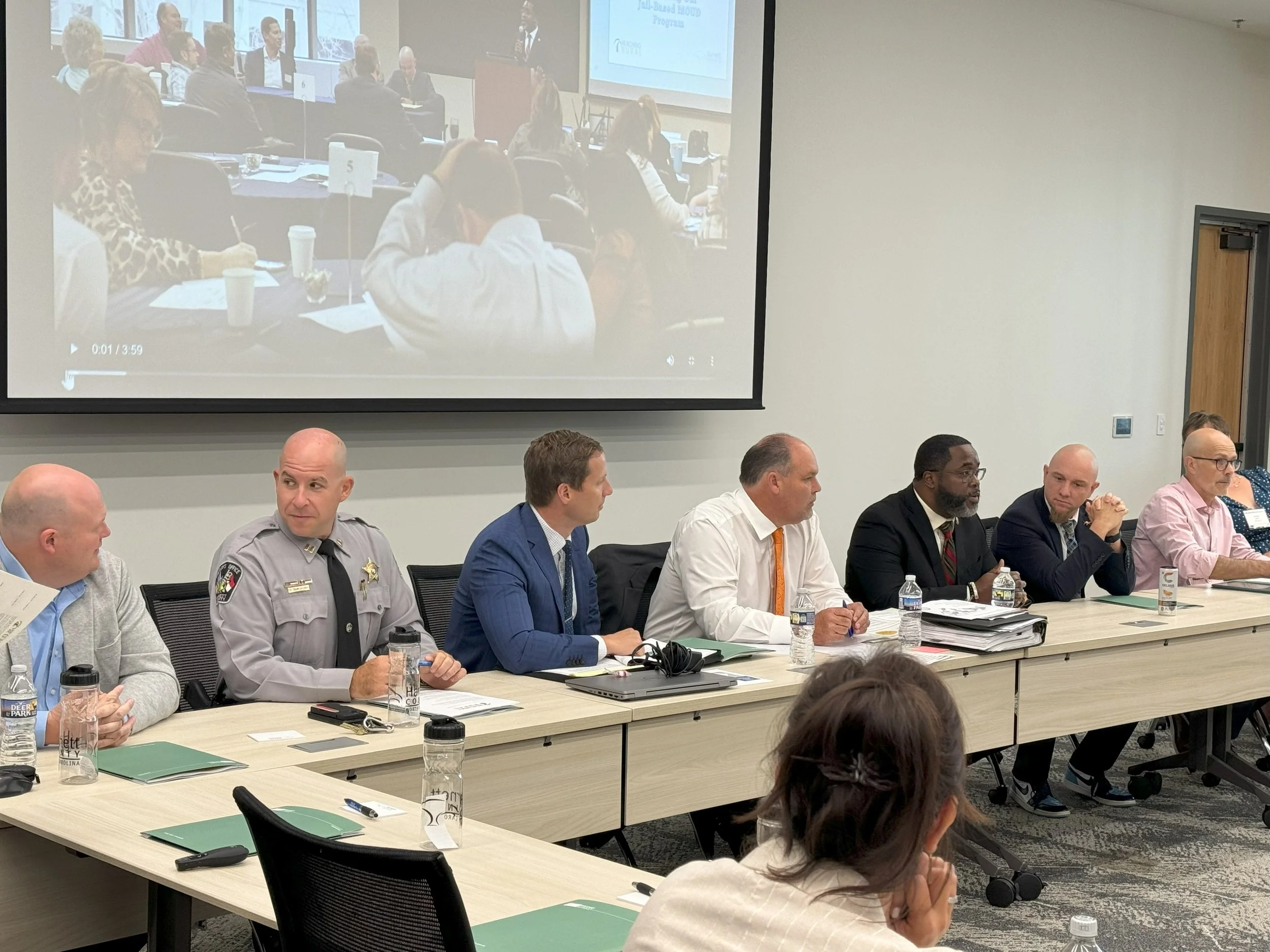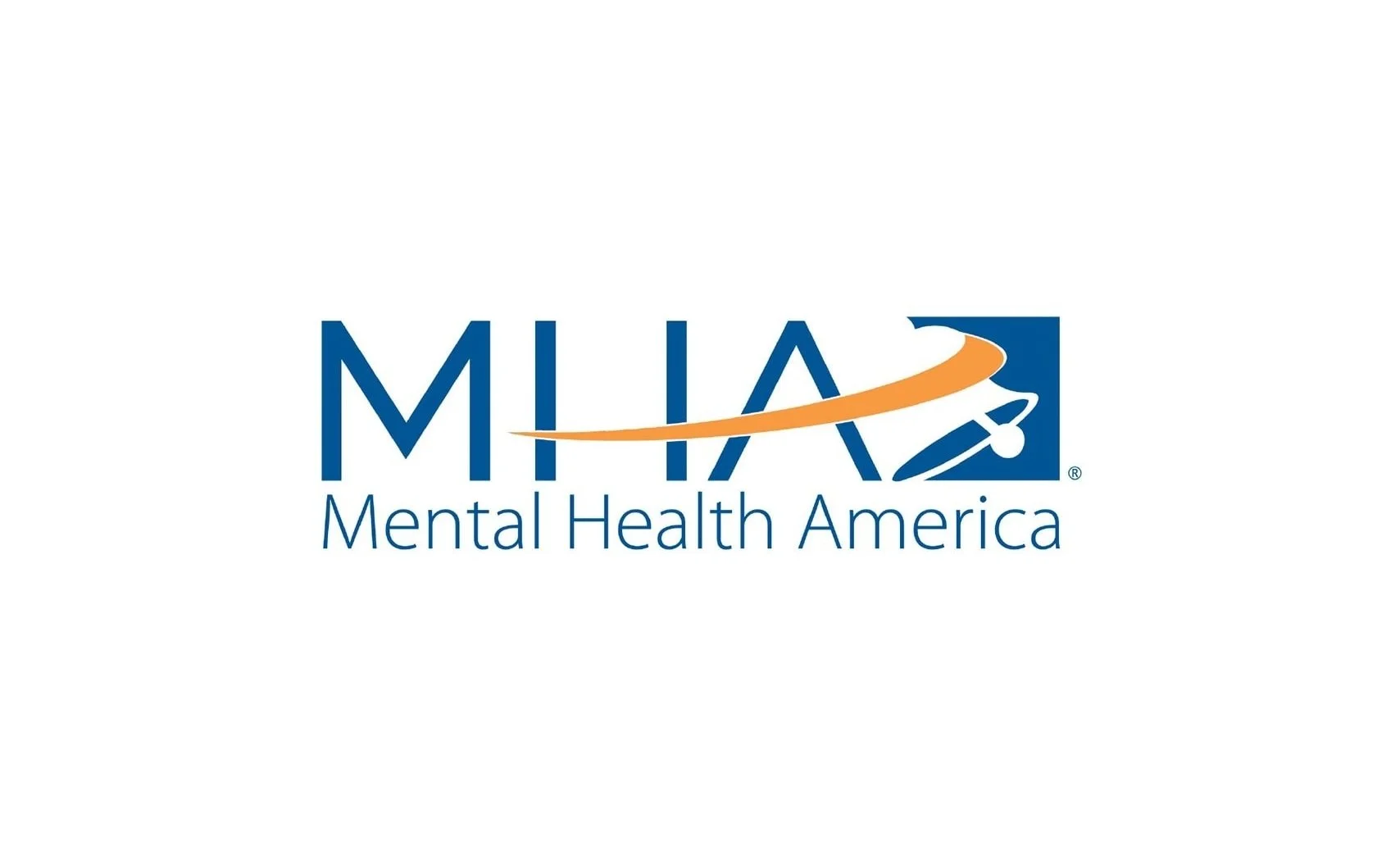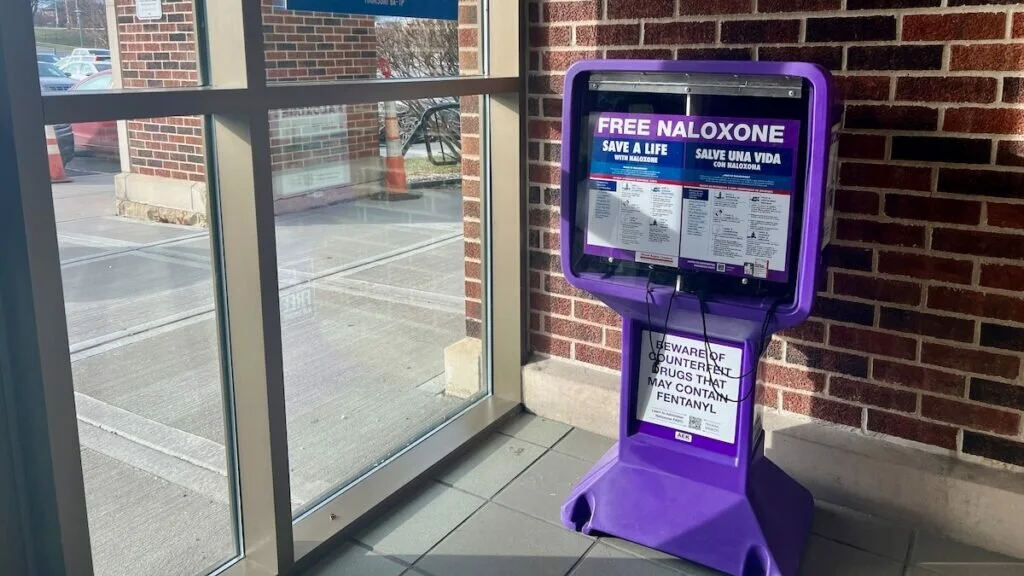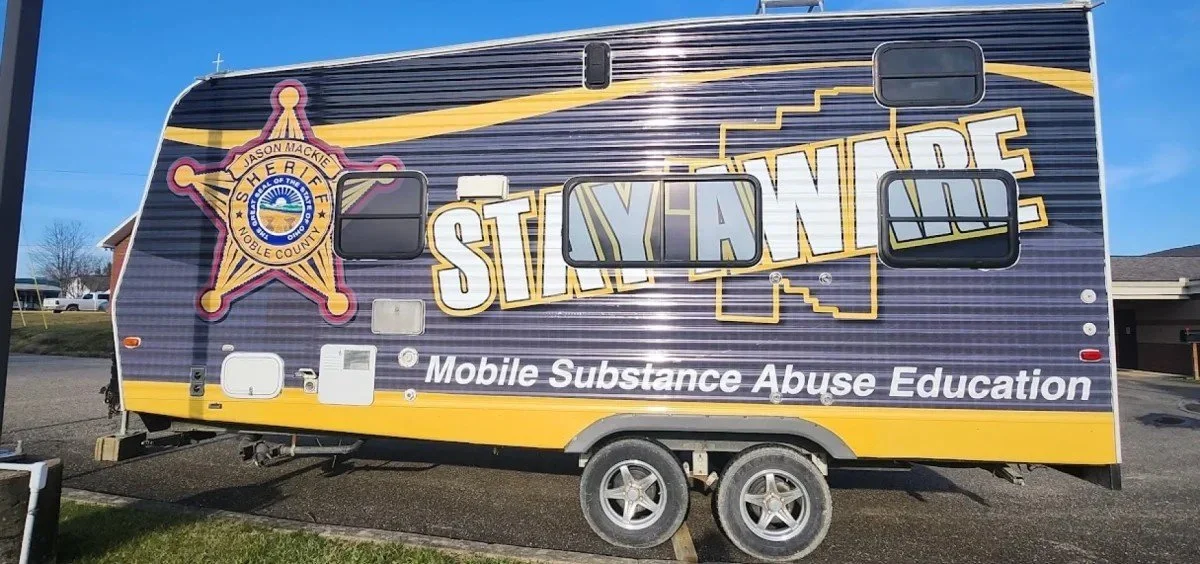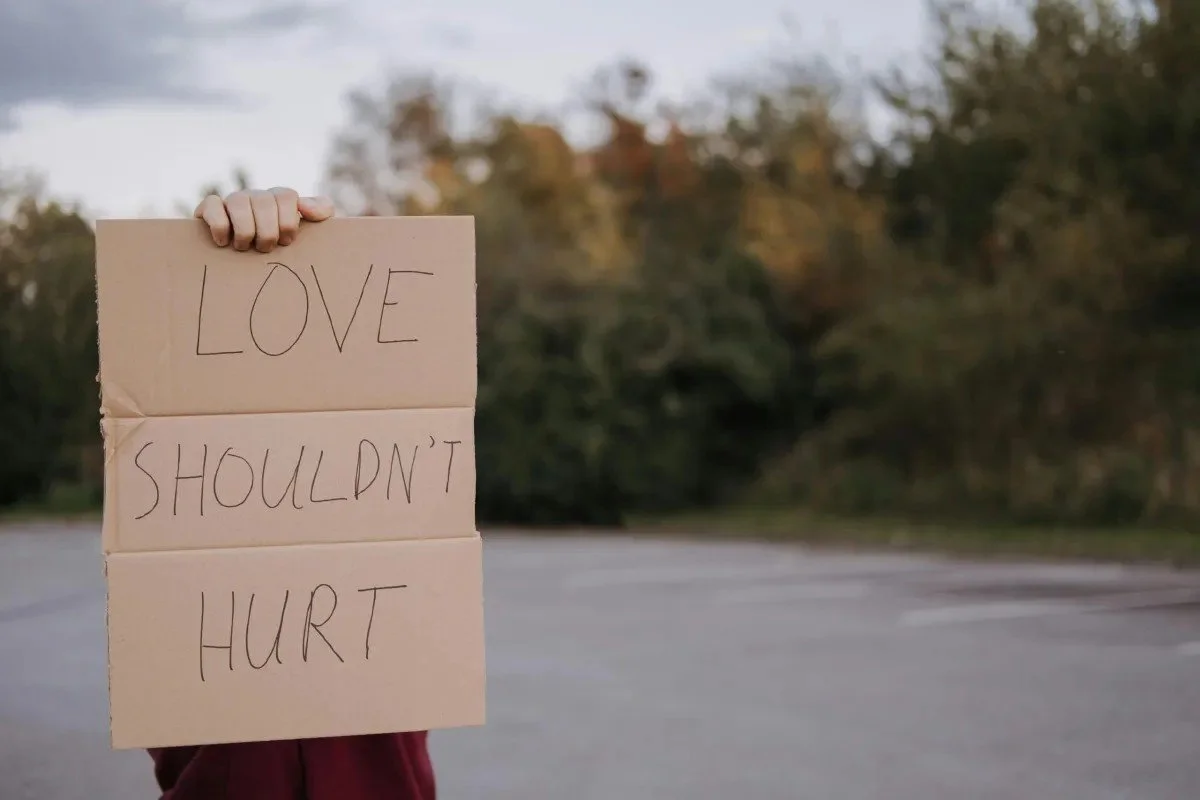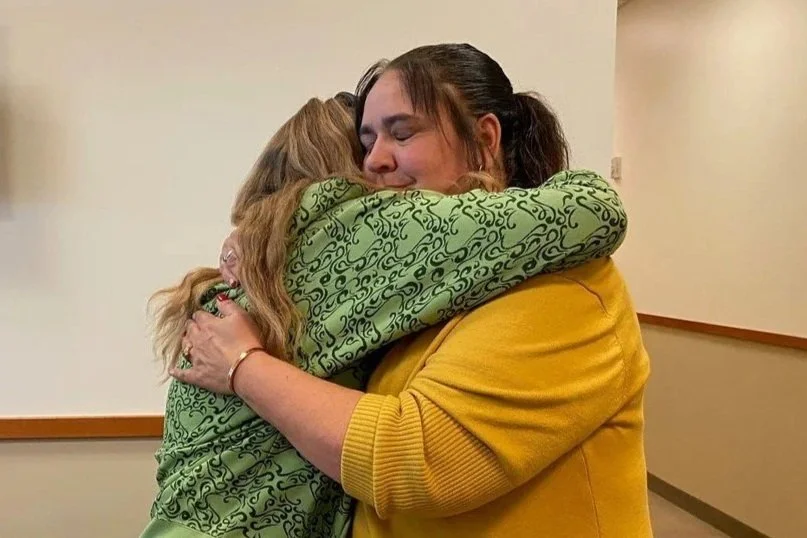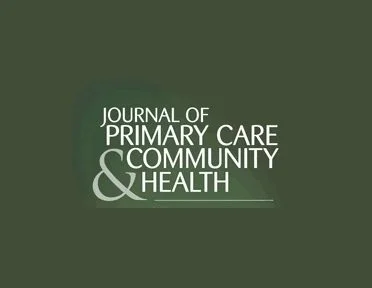Resources for Rural Communities
Use the filters below to search by resource topic, type, and audience.
An Examination of Access and Barriers to Co-Occurring Disorders Treatment in a Rural Jail
Rural jails struggle to screen and treat individuals with mental health and substance use disorders, with only 3% of eligible arrests leading to treatment. The most common path to care is post-arrest screening, especially for those with prior arrests. However, only 38.4% of referrals result in treatment, and males are less likely than females to participate, pointing to major gaps in access, outreach, and support.
Evaluation of a primary care-based Medication for Opioid Use Disorder (MOUD) program in a fully-integrated federally qualified health center
Clackamas Health Centers (CHC), a Federally Qualified Health Center in Oregon, has offered medication for opioid use disorders (MOUD) for over a decade. CHC also provides MOUD to individuals involved with the criminal justice system. This evaluation examines how CHC's MOUD program implements low-barrier care.
Reaching Rural: Building Trust and Expanding Access for Mental Health
This webinar explores challenges and solutions related to mental health outreach in rural communities. It features insights from experts who share their experiences addressing stigma, building trust, and expanding access to mental health care in rural areas. The session highlights the importance of culturally sensitive approaches, trusted community messengers, and sustainable programs tailored to rural populations.
How Rural Communities Are Using EMS to Help Solve the Opioid Crisis
California is one of just five states in which the rate of death from drug overdoses is higher in rural areas than urban ones. In the California Health Report, PHI’s Bridge Center is highlighted for its program, which trains EMS units to administer medications that help withdrawal symptoms, helping to reach the state’s rural populations with critical care.
Integrating Mental Health Support into Rural Libraries
This evaluation and report provide findings from an initiative integrating nonclinical adult mental health supports into rural libraries. The report is intended for community members and leaders interested in implementing nonclinical mental health support within libraries or other community spaces to expand the mental health workforce. A related toolkit offers guidance for librarians on identifying and initiating mental health supports within libraries to assist patrons with their mental well-being.
How a New Program is Sparking Change in Ohio Jails
A couple of years ago, the Sandusky County Jail was the first in Ohio to launch a program called IGNITE, which stands for Inmate Growth Naturally and Intentionally through Education. IGNITE started in 2020 at a county jail in Flint, Michigan. The sheriff there wanted to shift the jail’s culture and reduce the rate of people returning to jail. So they started offering courses to teach skills like financial literacy and parenting. Since then, the National Sheriff’s Association has adopted the program and has spread to more than 25 jails nationwide.
Non-Profits Partner to Bring Mental Health for Children and Caregivers in Rural Communities
The California-based La Maida Project announced this month that it is working with Save the Children to build and implement a training network that will support rural early- childhood educators and their youngest learners. By taking an ecological approach to mental health, the partnership seeks to help both the children and their caregivers.
Effects of Using Different Rural Measurements on Estimates of Hospitalizations for Depression and Substance Use
Some evidence suggests that rural populations have a higher prevalence of depression and substance use disorder (SUD) than their urban counterparts. However, estimates for mental health conditions and SUDs in rural locations vary considerably depending on the measurement of rurality researchers use. The current study aims to empirically examine how the choice of rural measurements affects estimates of hospitalizations for depression and SUD in rural populations. Using several common methods for determining rurality, we examined how characteristics of “rural” patients hospitalized for depression or SUDs differ based on the definition of rurality used.
Range Podcast: Opioid Overdose in Rural WA & ID
This episode explores the landscape of opioid overdose in the rural areas of North Idaho and Northwest Washington, and highlights the tragic story of Jasmine Martin, a 23-year-old who died from an overdose in 2024 while trying to get sober. The conversation explores the availability of recovery resources, stigmas surrounding addiction, and the complexities of fentanyl use in small communities. (Jasmine’s story, min. 11:18)
A New Treatment Study is Showing Promise for Rural Mainers with Opioid Use Disorder
With opioid addiction continuing to affect thousands of residents in Maine each year, Seaport Community Health Center (SCHC) in Belfast, a rural area of Maine, is initiating a trial for a new treatment that may significantly enhance access and consistency for individuals struggling with opioid use disorder. SCHC is among several sites involved in a nationwide study assessing the efficacy of Brixadi, an injectable medication designed to treat opioid addiction. Unlike traditional medications such as Suboxone, which require daily administration under the tongue, Brixadi is administered monthly.
WSU Researchers Investigate Rising Rural Jail Rates in Washington
This article discusses research conducted by a team at Washington State University on incarceration rates in rural county jails. The team examined data from six rural counties over six years and found that a significant number of individuals held in jails were there due to missed court appointments or violations of other legal system rules, rather than crimes against people or property. The study also identifies a lack of resources, such as adequate defense attorneys and accessible case information, as factors contributing to the issue.
The Evolving Role of Drug Courts in Combating Addiction and Recidivism
In rural areas like Warrick County, addiction — particularly to opioids and methamphetamine — has touched nearly every family in some way. Traditional jail sentences often don’t solve the problem. In fact, in many cases, they make it worse. A person struggling with addiction might serve time, only to be released and fall right back into the same habits, the same crowd, the same pain. That’s where drug courts come in.
The Opioid Epidemic in Rural Communities: Can Telehealth Increase Access To Medications For Opioid Use Disorder And Offset Barriers To Care?
Examines rural telehealth use for SUD/OUD treatment, its impact on MOUD provision, and issues for sustaining telehealth-based care in rural communities.
Advancing Health Podcast: Bringing Virtual Behavioral Health Care Access to Rural Youth in West Virginia
Access to youth and adolescent behavioral health care is a major challenge facing rural communities. In this conversation, Adrienne Coopey, D.O., a child and adolescent psychiatrist at the West Virginia University Rockefeller Neuroscience Institute, discusses how a fully virtual collaborative care model is helping deliver early behavioral health interventions and improve access and outcomes for children across West Virginia.
Real Justice Starts With Listening, Not Labels
This article examines how individuals in Montana and across the United States are often identified by the alleged crimes they are charged with, rather than by their personal histories or circumstances. It describes ongoing efforts to address this issue, such as a collaboration between Bail Disruptor Riley and the Confederated Salish & Kootenai Tribes on the Flathead Reservation. Working with the Tribal Defenders Office, which uses a holistic defense approach, Riley offers support that acknowledges each person's unique background, needs, and goals.
Opioid Overdose Deaths Drop in Missouri, but Rural Areas Fight Stigmas, Barriers to Care
Narcan dispensing boxes are becoming common in Missouri to combat opioid overdoses. Officials stress the need for more addiction treatment services, better access to treatment, and improved coordination between emergency services and long-term care, especially in rural areas.
A Kentucky County's Recovery from Opioid Crisis Could Be a Model for Tennessee | Opinion
If we pretend that everyone that has made a mistake...should get some sort of economic death penalty where they can never get a job again, we will never overcome this problem.' Harlan County, Kentucky, a rural area with high overdose rates, is emerging as a model for addiction recovery. The county has implemented various recovery programs, drug courts, and transportation services, all funded by opioid settlement money.
In Southeast Kansas, Homelessness Is Treated as Health Care, and People Are Getting Off the Streets
In southeast Kansas, home to the highest poverty rates in the state, collaborative solutions tailored to the needs of the community have proven successful in addressing homelessness and healthcare. The Community Health Center of Southeast Kansas offers care to the region regardless of a patient’s ability to pay. The center is one example among several rural solutions across the state, filling in the coverage gap and fostering healthier communities.
Bridging the Gap: Building Capacity for 988 Crisis System Response Needs in Rural Populations
This webinar explores the unique challenges rural communities face in accessing crisis services, from geographic barriers to limited resources. Experts share strategies and promising practices for strengthening rural crisis systems, including insights on implementing the 988-crisis line in rural settings. Real-world examples highlight effective solutions to improve accessibility and ensure timely support for rural populations.
Lessons in Framing Overdose Prevention: Considerations for Rural Communities
To assist rural communities in effectively communicating overdose prevention, the Berkeley Media Studies Group (BMSG) offers comprehensive insights on how this topic is framed within rural contexts. Their presentation covers key components, including messaging strategies (beginning at 9:49), methods for framing and reframing the issue (16:28), utilization of Lakoff’s Levels of Framing (22:21), relevant research findings (25:16), techniques for message development (30:03), and recommendations for selecting effective messengers and communication practices (36:18).
Mapping the Lived Experience of Substance Use Stigma: A Conceptual Framework of Salient Attitudes, Beliefs, and Behaviors in Rural-Dwelling People Who Use Drugs
Explores lived experiences of substance use stigma among rural Appalachian people who use drugs, focusing on stigma experiences, consequences, and coping responses.
Who Is Most Likely to Use a Harm Reduction Vending Machine?
People who use drugs and live in rural communities may lack access to harm reduction services. Harm reduction vending machines that offer 24/7 access to resources may help address this need. This study examines who in particular may be more or less likely to use a harm reduction vending machine in a sample of people using drugs in Appalachia.
"We Plan on Using Every Penny" How Ohio Small Towns Are Making the Most of Opioid Settlement Money
Noble County, Ohio, received opioid settlement funds, insufficient for large projects, so rural areas strategize to maximize impact with limited resources.
If You Cannot Afford an Attorney, None Will Be Appointed for You: Exploring Rates Of Representation by Counsel in Texas Misdemeanor Courts
Examines how right to counsel is implemented in Texas misdemeanor courts. Rural and poorer counties have higher non-representation rates, but local policy decisions (e.g., public defender offices, eligibility criteria) significantly affect appointment rates.
Evicted In Rural Michigan: The Unique Challenge of Housing Instability in A Small Town
Discusses how rural housing agencies and advocates use available resources and state programs to stabilize housing and address eviction, jobs, transportation, and mental health in small towns.
AzCRH Webinar: Overdose Recognition, Naloxone Administration and Use Empowering Safety & Prevention
Arizona Center for Rural Health webinar on recognizing overdose, administering naloxone, self-care for witnesses, resilience strategies, and fostering safe environments for overdose prevention and recovery. Includes training and stigma-reduction segments.
Characterizing Caregivers of Youth at Risk for Substance Use and Caregiver Engagement in the Youth Legal System: A Mixed Methods Approach
Increasing caregiver participation is crucial for youth success in community supervision, but probation officers struggle to engage caregivers, especially in high-need families. Interviews with legal staff reveal varying caregiver involvement, different engagement approaches, and barriers such as permissive substance use views and caregiver substance use.
Identifying Signals of Mental Health Crisis in Calls for Police Service
Study of mental health call patterns in a rural county, showing stable hot spots and implications for police and mental health practitioners.
The Importance of Contextually Specific Support Relationships in Implementing Programs to Link People to Medication for Opioid Use Disorder (MOUD) Treatment During Reentry from County Jails
Using PRISM and RE-AIM models, this study describes how jail context features affect the number of people linked to MOUD and the sustainment of jail linkage programs, focusing on case studies in rural and urban Kentucky jails.
Addressing Barriers to MOUD Access at Rural Community Pharmacies
This webinar explores challenges rural community pharmacies face in dispensing medications for opioid use disorder (MOUD). Participants learn about barriers impacting MOUD access and discover practical resources and strategies to help expand treatment availability.
Mental Health Care Barriers for Women Involved in the Criminal Legal System with Substance Use Disorders: A Qualitative Study
This study examines mental health care barriers for women with opioid use disorder in the criminal-legal system, highlighting shortages of psychiatrists and therapists, especially in smaller jails and rural areas.
Legal Deserts and Spatial Injustice: A Study of Criminal Legal Systems in Rural Washington
This study examines the criminal legal systems of several sparsely populated counties in central and eastern Washington State. The study shows that a shortage of attorneys leads to delays and ineffective counsel for individuals involved in the system. Additionally, the heavy reliance on county governments to fund indigent defense, prosecution, and judicial functions creates financial strain.
Description Of Implementing a Mail-Based Overdose Education and Naloxone Distribution Program In Community Supervision Settings During COVID-19
Describes a mail-based overdose education and naloxone distribution program for people on community supervision in Kentucky, noting benefits and sustainability challenges.
PBS Report: Rural Communities Are Rethinking Women's Incarceration
Video explores challenges for women reentering rural communities after incarceration and highlights innovative solutions like farm-based housing and reintegration initiatives.
PBS Report: How Alternative Policing in Rural America Could Work
Video examines North Carolina small towns innovative responses to mental health emergencies, homelessness, and low-level crime, featuring social worker ride-alongs and crisis support programs.
The Good Ol' Boys and the Bad People: The Criminalization of Rural Disadvantage
Mixed-methods research on rising rural incarceration rates, with rural jail populations increasing while urban rates decline. Explains differences and contributing factors.
Moving Beyond Addiction: In Eastern Oregon, Drug Use Often Lurks in The Shadows
Discusses hidden fentanyl use in rural Oregon and a new deflection program to divert people from misdemeanor charges into treatment.
Paralegals on Fire Podcast Ep. #145 Learn About Alaska's Community Justice Workers Project
Podcast on Alaska's project training non-attorney community members to provide legal services in rural areas, highlighting cross-sector partnerships.
First Responder Substance Use Stigma Measures Toolkit
Toolkit for assessing first responders attitudes and stigma toward people with opioid use disorder, validated for law enforcement, EMS, and fire personnel.
Montana's Mental Health Crisis: How One County's Mobile Crisis Response Team Is Filling Gaps and Saving Lives
Gallatin County's mobile crisis response team serves as a model for rural crisis response, focusing on identification, partnerships, creative solutions, and data-driven performance.
A Perinatal Psychiatry Access Program to Address Rural and Medically Underserved Populations Using Telemedicine
Describes a telehealth program (Moms IMPACTT) improving access to perinatal mental health and substance use care for rural and underserved populations.
The Opinions Podcast: This Jail in Rural Maine Is a Model for Treating Opioid Addiction
Podcast episode on Somerset County Jail's innovative addiction treatment program and its impact on inmates and the rural community.
Study: Effective Parenting Support Strengthens Rural Families
Study of The Family Check-Up, an online parenting program for rural parents with mental health or substance use issues, showing reduced depression and improved parenting skills.
Identifying and Responding to Stalking in Rural Communities
Webinar on stalking in rural communities, covering tactics, intersection with domestic violence, accountability, and the SHARP assessment.
Community Opioid Overdose Reversal Medications (OORMs) Planning Toolkit
Toolkit for expanding access to naloxone and other overdose reversal medications, providing guidance for communities to develop effective prevention and response strategies.
Rural Houselessness Among People Who Use Drugs in The United States: Results from The National Rural Opioid Initiative
Study describes houselessness among people who use drugs in rural communities across 10 states, addressing gaps in understanding rural drug use and harm.
Stigma and Substance Use: Rewriting the Narrative - AMERSA Podcast Ep. #2 Overcoming Substance Use Disorder Stigma in Appalachia
Podcast episode explores stigma and healthcare access challenges for people with SUD in Appalachia, frameworks for understanding beliefs, and ways to address internalized stigma in healthcare and communities.
Restorative Radio
Community media project in Central Appalachia supports communication and healing for families and communities affected by mass incarceration.
Teens Linked to Care: Supporting Rural Youth
Teens Linked to Care (TLC) program developed and evaluated prevention strategies for substance use and sexual risk among high-risk rural youth, with a toolkit for schools.
From Settlement to Solutions: Resources for Evidence-Based Opioid Settlement Fund Use Based on Community Conversations: A North Carolina Case Study
Resource hub offers best practices, policies, trackers, and tools for effective use of opioid settlement funds, including naloxone calculators and assessment toolkits.
Beyond Urban Centers: Investigating General Strain Theory and Opioid Use Among Rural Adolescents
Research on strains (victimization, homelessness, poor health) and opioid use among rural adolescents, applying general strain theory.
Medications for Opioid Use Disorder Among Transition Age Youth Compared to Adults 26 or Older in Rural Settings
Study compares MOUD access and retention for rural youth (18-25) versus adults 26+, finding lower retention and unique barriers among youth.
Wisconsin's Rural Homelessness Crisis and The Fight to Do ‘More with Less’
Discusses rural homelessness in Wisconsin, hidden forms of homelessness, and solutions such as new rental units, funding, and case management.
Rural Justice Initiative Committee Releases Report and Recommendations
Kansas report with recommendations to attract attorneys to rural areas and inspire students to pursue legal careers, addressing the rural justice gap.
Understanding MAT Access In the Context of Unused MAT Capacity in The United States: When Increasing Rural MAT Capacity Is Not Enough
Explores MAT (buprenorphine) capacity and access in rural areas after DATA waiver elimination, finding access increased but many more could be served if all providers prescribed to capacity.
An Enticing Offer: How Some Rural Communities Are Winning the Competition for New Clinicians
Report on strategies rural communities use to attract and retain new clinicians, including training and peer support opportunities.
On the Rebound: Stories from Recovery Court
This podcast series tells the stories of participants in Galax, Virginia's Recovery Court, focusing on opioid crisis impacts and rehabilitation.
PBS Report: Substance-Use Prevention Model Working in This KY County
Franklin County, KY, implements the "Just Say Yes" prevention program using sports, arts, and music, with data showing reduced youth substance use.
Receipt of Medications for Opioid Use Disorder Among Rural and Urban Veterans Health Administration Patients
Study finds rural veterans less likely to receive methadone but more likely to receive buprenorphine for OUD, highlighting access disparities.
Roadblocks to Reporting: Examining Barriers that Deter Domestic Violence Victim-Survivors from Reporting to Law Enforcement in Rural Communities of Pennsylvania
Report on barriers to domestic violence reporting in rural Pennsylvania, examining differences with urban areas and outcomes for victim-survivors.
A Native-Led Program on the White Earth Reservation is Rewriting the Rules on Opioid Treatment for Parents. It's Working.
The MOMS program in Minnesota helps parents recover from opioid abuse and thrive, offering lessons for other communities.
Anger and Associated Risk and Protective Factors Among Rural American Adolescents: Implications for Violence Prevention
Study on anger as a risk factor for adolescent violence in rural areas, emphasizing the need to address structural, community, and individual factors.
Legal Kiosks Open New Opportunities for Access to Justice in Ely
Nevada Legal Kiosk program brings free legal information and resources to rural libraries, improving access to justice.
A Cross-Sectional Study of Stigma Towards Opioid Users Among Rural Law Enforcement And Community Members In Tennessee
Study compares stigma toward opioid users among rural law enforcement and community members, highlighting challenges for overdose prevention and recovery.
Vera Incarceration Trends
The Vera Institute of Justice Incarceration Trends website includes more than five decades of local jail and state prison data at the national, state, and county levels.
Transportation and Housing Shortfalls Complicate Access to Help for Domestic Violence Survivors
Rural survivors face major barriers to safety due to sparse public transit and lack of affordable housing, increasing costs for agencies providing transportation and shelter.
Examining Use of Telehealth in Jails: Linking Women to Community OUD Services
Mixed-methods study in Kentucky highlights innovative telehealth approaches for connecting incarcerated women to MOUD at community re-entry.
A Novel Rural Hospital/Clinic-System Practice-Based Research Network: The Rural Addiction Implementation Network (RAIN) Initiative and Its Goals, Implementation, And Early Results
RAIN established a rural hospital/clinic research network to implement evidence-based addiction prevention, treatment, and recovery services, using facilitators and community learning calls to overcome barriers.
One Crisis or Two Problems? Disentangling Rural Access to Justice and the Rural Attorney Shortage
Review analyzes rural access to justice, arguing more lawyers alone may not solve the crisis and exploring broader solutions for rural communities.
Butler County Ohio Jail Reentry Program
Butler County Jail's reentry program uses community partnerships for post-classification assessment, post-release action plans, and inmate advocacy.
The Role of Certified Community Behavioral Health Clinics in Crisis Services and Systems
White paper highlights CCBHCs' role in expanding rural crisis access, leveraging local partnerships and flexible arrangements; includes rural-focused section.
Rural Court Perspectives on Addressing Substance Use Disorder in Justice-involved People
In July 2024, the State Justice Institute (SJI), in partnership with the Institute for Intergovernmental Research (IIR) and the National Council of Juvenile and Family Court Judges (NCJFCJ) convened a 1-day listening session for judges and court personnel from rural communities to discuss barriers, successes, and innovations related to addressing substance use disorder (SUD) for court-involved people and to identify opportunities to more effectively support children and families impacted by SUD. This report summarizes highlights from that discussion, with a focus on strategies that are currently working well in rural courtrooms and an examination of ongoing challenges for rural judges and communities.
Maine Jail's Groundbreaking Opioid Treatment Program Shows Promise
Somerset County Jail's extended-release buprenorphine program results in higher treatment retention and no overdose deaths post-release, compared to daily medication models.
Implementing Peer Support into Practice in Mental Health Services: A Qualitative Comparative Case Study
Interviews with peer workers and supervisors explore factors for successful implementation and optimization of peer support in mental health services.
Linkage Facilitation for Opioid Use Disorder in Criminal Legal System Contexts: A Primer for Researchers, Clinicians, And Legal Practitioners
Explores linkage facilitation for OUD at every touchpoint in the criminal legal system, using the Sequential Intercept Model to describe redirection to recovery-oriented care.
Rural Roads - The RCORPodcast Ep. #74 Innovation Tank Follow-Up - Reducing Jail-Based Recidivism in Utah
Utah's Intermountain Health team discusses jail-based programs that reduce recidivism and opioid deaths, and share strategies for community engagement and program replication.
Introduction to the Special Series: Using Evidence to Enhance Health Services for Individuals Using Drugs in Rural Communities
This series highlights empirical research and solutions to improve health outcomes for rural individuals using drugs, including technology to address transportation and workforce shortages.
Building a Behavioral Health Continuum of Care: The Role of Rural Leaders and Behavioral Health Directors
Webinar highlights rural leadership and behavioral health directors roles in building sustainable, accessible behavioral health systems through community dialogue and policy.
Hidden Struggles: Addressing Mental Health Stigma in Rural Areas
This webinar explores stigma in rural communities and provide resources to support mental health in rural areas.
The Rural Utah Community at The Crossroads of The Fentanyl Epidemic
Carbon, Grand, and Emery counties in Utah have opioid death rates more than double the state average; this series investigates the crisis and potential solutions through interviews with affected individuals and officials.
Successful Pretrial Strategies in Rural Communities: Small-Town Solutions to Solve Big-Time Problems
Webinar on rural pretrial justice strategies, needs, and funding opportunities, featuring experts from North Carolina and Indiana.
Life-Changing Supports: In Rural North Carolina, a Program for Treatment of Substance Use Disorder Through Pregnancy and Beyond Offers Care and Counters Stigma
Project CARA in Asheville, NC, provides integrated medical, substance use, and behavioral health care for pregnant and parenting people with SUD, aiming to reduce stigma and improve outcomes.
Rural Roads - The RCORPodcast Ep. #71 NaloxBoxes in Rural Settings
Discusses implementation and sustainability of NaloxBox programs for naloxone distribution in rural Wisconsin counties and schools.
Understanding The Needs of Rural Communities: Principles and Practices for Overdose Prevention and Response
Report with recommended principles and practices for rural overdose prevention and response, aimed at local stakeholders.
When Medication Treatment for Opioid Use Disorder Gets Disrupted by Extra-Clinical Variables, How Should Clinicians Respond?
Commentary on how clinicians can mitigate harm from MOUD disruption due to arrest or incarceration, recommending strategies for continuity of care.
Rural Roads - The RCORPodcast Ep. #70 Adventures in Recovery (AIR) Initiative
Adventures in Recovery (AIR) in Cattaraugus County, NY, offers peer-led sober activities and support, fostering recovery through community engagement and wellness.
RTI Just Science Ep. #294: Just Outreach Teams for Substance Use in Rural Nevada
To support justice-involved individuals with substance use disorders in rural Nevada, the Office of the Attorney General has developed two outreach programs-Mobile Outreach Safety Teams (MOST) and Forensic Assessment Service Triage Teams (FASTT)-to intervene at various stages of the criminal justice process. Dr. Kerns, Dr. Snider, and DJ discuss how these teams operate, their impact at state and local levels, and strategies for overcoming implementation challenges.
"Expected to happen": perspectives on post-release overdose from recently incarcerated people with opioid use disorder
Study of people with OUD released from jail in Massachusetts identifies risk and protective factors for post-release overdose, based on participant interviews.
Breaking the Cycle: Pilot Program Aims To Keep Rural Acadiana Residents Out Of Prison
New anti-recidivism program in rural Louisiana supports reentry, aiming to reduce high rates of prison return by providing local social and economic support.
Pain and Progress Through a Rural Lens: Community Violence Intervention Beyond Urban America
Community Violence Intervention (CVI) is being adapted for rural America, with practitioners sharing insights on rural-specific approaches and challenges.
"I Don't Think That a Medication Is Going to Help Someone Long-Term Stay Off Opioids": Treatment And Recovery Beliefs Of Rural Vermont Family Members Of People With Opioid Use Disorder
Study of rural Vermont family members beliefs about OUD treatment finds skepticism about MOUD and highlights the importance of social support and stigma reduction.
Facilitators and Barriers to Adopting or Expanding Medications for Opioid Use Disorder Provision in Rural Colorado Jails: A Qualitative Analysis
Qualitative study of staff in rural Colorado jails identifies facilitators and barriers to MOUD adoption and expansion, including resource constraints and attitudes.
Rural Victims of Intimate-Partner Violence Need More Resources and Support, Study Finds
University of Minnesota study finds rural IPV victims face more barriers and need tailored resources and support for health and safety.
Lone Star Legal Aid Introduces Courthouse Kiosks to Support Access to Justice in Rural Counties
LSLA's courthouse kiosks in rural Texas provide easy access to legal aid applications for low-income individuals, supporting those affected by the opioid crisis.
Returning to the Community: Health Care After Incarceration
The US Department of Justice (DOJ) and the Centers for Medicare & Medicaid Services (CMS) released a guide to help people reentering communities after incarceration connect to health coverage and services, supporting reentry and health.
Rural Jails Turn to Community Health Workers to Help the Newly Released Succeed
Sanpete County, Utah, jail's community health worker program reduced recidivism by connecting released individuals to treatment, jobs, and support.
Contextualizing Medications for Opioid Use Disorder and Peer Support Service Provision in the Probation System with Implementation Science
Study uses the EPIS framework to examine implementation of MOUD and peer support in probation settings, focusing on stakeholder perspectives and rural contexts.
Insights from the Reaching Rural Initiative - Navigating Leadership, Innovation and Community Impact in Addressing Substance Use Disorder in Rural Communities
Webinar shares lessons from county officials in the Reaching Rural Initiative on leadership and innovation to improve rural substance use outcomes.
Rural-Urban Differences in Out-of-Network Treatment Initiation and Engagement Rates for Substance Use Disorders
Study finds rural SUD patients with commercial insurance face greater barriers to in-network care, leading to more out-of-network treatment and lower engagement rates.
A Refurbished Bus Brings Opioid Treatment to Deer Park, Testing a Model That Could Be Used Across the Rural U.S.
Mobile opioid treatment clinics bring medication-assisted treatment closer to rural residents, reducing travel burdens and improving access.
The Influence of Transformations in Supply on Methamphetamine Initiation Among People Injecting Opioids in the United States
Study in West Virginia links increased methamphetamine supply to rising opioid-methamphetamine co-use and overdose mortality in rural communities.
Access to MAT: Participants' Experiences with Transportation, Non-Emergency Transportation, and Telehealth
Study in West Virginia examines how transportation, Medicaid-funded NEMT, and telehealth affect access to MAT for OUD, highlighting rural barriers and solutions.
Incorporating Peer Recovery Support into Treatment Courts: Practice Guidelines for Treatment Court Professionals
Guidelines for integrating peer recovery support into treatment courts, including adult, DWI, opioid, veterans, and co-occurring courts, with rural considerations.
Ask the Expert: Crisis Response in Rural Areas
Webinar features rural Arizona crisis response leaders discussing unique challenges and solutions for implementing crisis programs in small/rural jurisdictions.
Incorporating Peer Support into Substance Use Disorder Treatment Services
SAMHSA Treatment Improvement Protocol (TIP) offers guidance for integrating peer workers into SUD treatment, with specific considerations for rural programs and linking individuals to peer support.
Leveraging Telehealth for Justice-involved Populations With Substance Use Disorders: Lessons Learned and Considerations for Governors
This brief reviews activities undertaken by states to expand the use of telehealth for justice-involved individuals with SUDs during the COVID-19 pandemic, share lessons learned, and highlight considerations for governors who wish to leverage telehealth services to increase access to SUD treatment for those involved in the justice system.

